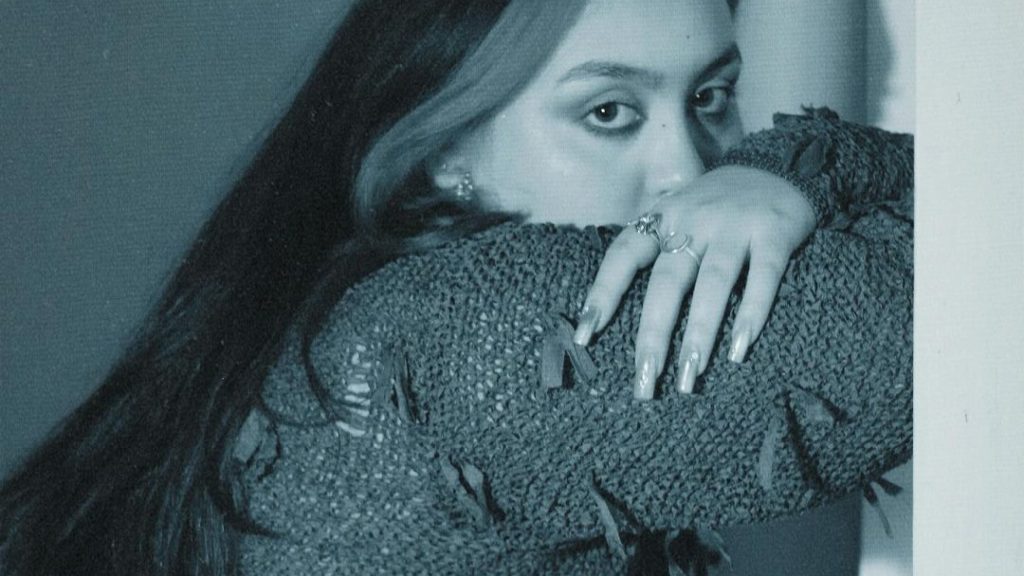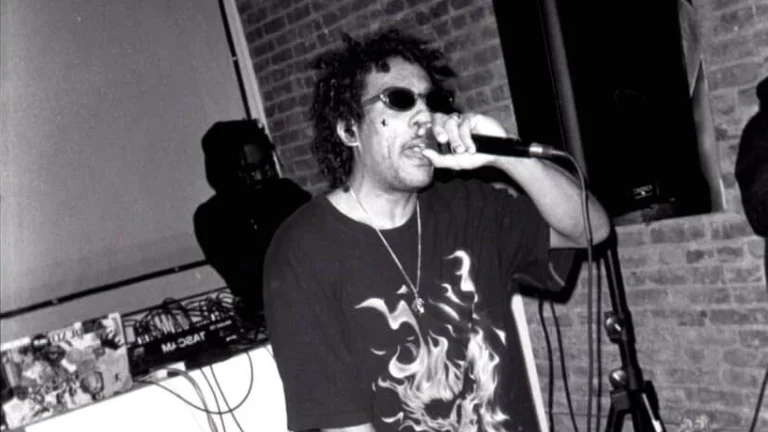Onbloom burst onto the music scene in 2020 from the vibrant inner city of Boston, infusing a distinctive touch into the R&B /pop spectrum, dibble-dabbling in the infamous miserablism of recent times. Her ability to blend rich melodies with ruminative lyrics creates a sound that feels both contemporary and timeless, allowing her to explore complex themes of vulnerability and resilience while remaining relatable in her emotional landscape. She embodies the idea that music serves as a powerful emotional conduit to resonate with people while simultaneously pushing the boundaries of conventional artistry.
The pandemic was a gruesome era in which everyone indulged in new interests, confronted unfamiliar realities, and dipped in self-introspection. For many, the process resulted in better intrapersonal relationships, and others, like Onbloom, bloomed into art. Similarly to the googolplex of creative work churned out during and post-pandemic, her music symbolizes a deep foray into self, truth, and absurdism that mirrors a deep-seethed hope to cling to lucidity.
Aside 808s-ladened beats and sultry melodies, Onbloom’s 2020 EP The Star featured Jhene Aiko-esque melodies like “Silver Lining,” in which she portrayed herself as a beacon in a “fusion of thunder and skies,” not tired but exhausted, persevering through melancholy. A year later, her second EP, Momentum, followed this path of self-discovery documenting her quest for freedom, the torture of being misunderstood, and her estrangement from reality, alongside a keen awareness of it. Throughout all of these, one thing has remained obvious: She has never hesitated to wear her heart on her sleeves.
It is, therefore, intriguingly ironic that her latest demo tape is titled swept under the rug.
With the opening track, “maybe,” Onbloom sets a hauntingly introspective, possibly hypnotic, tone featuring atmospheric synths and smooth, layered instruments that create an ethereal vibe and a dreamy sphere. Through polished production and mellow rhythm, “maybe” captivates listeners. One can almost visualize a dimly lit room, illuminated by a solitary bulb, with Onbloom seated in a corner, weighing her wounds and the implicit consequences of her decisions in her distress. “maybe” revolves around that moment of self-examination where the protagonist questions if they have been the architect of their own suffering. “I created all that kicked me / all that burned me / maybe,” she sings with a soft soothing quality, her musings float like wisps into a starless sky. From subtle whispers to stronger notes, she employs unique, subtle dynamics to enhance the emotional impact, allowing the lyrics to resonate deeply.
The second song, “speaking in tones,” opens with pensive air, vocals joining as the tempo rises. There is something about her harmonizing over a seemingly raucous drum beat that creates a contrast that allows both elements to shine sonically even brighter. The subtle aversion to vulnerability—one of the standout qualities in her most deeply affecting lyricism and overall discography—nestles mainly in this track. It is in the way she subtly navigates the lyrics, stylishly tucking them over a driving drumbeat, which creates a sense of distance. Lines like, “Keep me in your sleep / Far away from all that’s done / Let my words take space / Call me when you’re crazy” emphasize the tension between the lyrical content and the high-powered instrumentals but also open an awareness to the complexity of her emotions. While the listener might initially be captivated by the impressive production, synths, and sleek beat, the deeper layers of the lyrics reveal fragments of a story with themes of alienation and distress. Taking into consideration the song’s title where “tones” sounds like “tongues,” it wouldn’t be far-fetched to posit that the artist is being purposefully cryptic, embedding meaning in a more enigmatic language. On a melancholic note, she describes the struggle of holding on to a fading lifeline, “Don’t leave now / give me time / time to mind / where we went south.” The track’s beat then descends into a more broody segment where she delves into a dying romance with such poignant agony in her pitch that you can feel the overwhelming desperation of one fighting to keep their heart from breaking, leaving their lover notes like “Have you thought of coming home?”
In “like a prophet,” there are also the piquant sexual undertones in the title and the even sultrier way she croons the verses enough to have your pulse racing and ears throbbing for innuendo-rife rhymes that cast a subtle nod to the Madonna classic. Instead, she surrenders to the transcendency of love and towards the end offers reverence to a different icon, as she sings, “Baby, baby, baby…” If you’re thinking of the color purple and a provocative male performer in heels, you’re correct.
Finally, in “todo es muy simple,” which translates to “everything is so simple,” Onbloom resonates with a poem by Uruguayan poet Idea Vilariño dating back to the ‘60s. The one-minute track, quoted in Spanish, features the singer performing the poem over low, simple harmonies and lush instrumentation. The contradiction to the supposed simplicity the title implies lies in the transient spaces of fear, numbness, and a pervasive sense of nothingness saturating the lyrics: “Everything is so simple / A lot simpler and nonetheless / There are still moments / Which I’m unable to handle / Which I don’t understand.” Aside from the authenticity in those lines, the interplay of melodic elements and the cultural dimension, make it a standout conclusion to swept under the rug, enriching the overall experience.
While Onbloom’s previous release focused on her journey through the pandemic and the search for meaning and normalcy, this project feels like a continuation, regarding the post-pandemic era with nuanced observation. The cover art features Onbloom with both hands raised in a twilight room, an expression of letting go, yet the 9-minute EP hints at emotions that remain concealed, swept under the rug. So, perhaps vulnerability is not just about exposure but also about the willingness to be seen.
In any case, Onbloom maintains an unwavering perception of self, even as she reaches deeper to shape her identity. Her music creates an intense, almost sacred atmosphere, guiding listeners toward catharsis. Her voice calls urgently to life, realism, and love, traversing the ephemeral spaces and moments we occupy.





